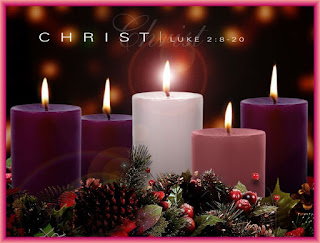“And he said: “Truly I tell you, unless you change and become like little children, you will never enter the kingdom of heaven. Therefore, whoever takes the lowly position of this child is the greatest in the kingdom of heaven.”
Matthew 18:3-4
I just started reading Mary Eberstadt’s “How the
West Really Lost God.” I’m finding it
very sobering. Christianity seems to be in steep decline in the West. A recent
British survey concluded that “only two in five British people now
identify as Christian.” The survey also noted that “the proportion of
people who do not follow a religion has risen from just under a third in 1983
to almost half in 2014.” Not too long ago, Keith Wood, a staff writer for the
Independent, got to the heart of what more and more Britons are thinking – “It
is undemocratic for these representatives to make laws binding on a population
that largely considers religion to be irrelevant.”
The story in the United States is much the same.
The prospects for Christianity in the West do indeed
seem grim. Unbelief seems to be waxing; belief seems to be waning. If Nietzsche were alive
today he just might be crowing with delight - “See, I prophesied it over a
hundred years ago. The great Christian cathedrals have become tombs.”
Not long after I wrote the op-ed about Advent, two
“radicalized” Muslims killed fourteen and wounded twenty-one at a Christmas
function in San Bernardino, California. Terror is once again afoot in America. The
threat of more attacks should unify us, but we’re polarized. Some say they’re
praying for the victims, while their detractors tell them to shut up. “God
isn’t going to do anything!” they say.
It’s really strange. Prayers are being scoffed at, just
when they’re needed most.
This coming Sunday is the final Sunday of Advent. In
many churches, a fourth Advent candle, representing peace, will be lit.
Christians will be thinking of Jesus, who came to us as the Prince of Peace. It
was a peace that some tried to cut off as it was being born into the world.
Herod and his inner court, fearing that they would lose their grip on power,
ordered the killing of all of Bethlehem’s male children two years old or under.
It seems like things have always been this way. Terror,
in one form or another, all too often tries to snuff out the message of peace.
The terror and fear are very real and they seem to
be growing in strength. There doesn’t seem to be a way out, particularly at a
time when unbelief seems to rule the day. Given the state of the world and
America’s polarized society, peace seems more like a pipe dream than a promise.
At the end of his earthly life, Jesus told his
disciples, “Peace I leave with you, my peace I give to you; not
as the world gives do I give to you. Let not your heart be troubled, neither
let it be afraid.”
The words, while comforting, also
beg two questions. Can we truly believe them? How do we put them into practice?
A few months ago I came across an
interview on YouTube of a 10 year old Iraqi Christian girl named Myriam. You
can access the video at the following URL -
https://youtu.be/_ige6CcXuMg.
At the end of the interview, the
reporter asked Myriam if there was a song she’d like to sing. One short stanza
from that song follows:
“How
beautiful is the day on which I believed in Christ; my joy was made complete at
dawn, and my voice sang with gratitude… A new life, a joyful day, when I
reunite with my Beloved.”


